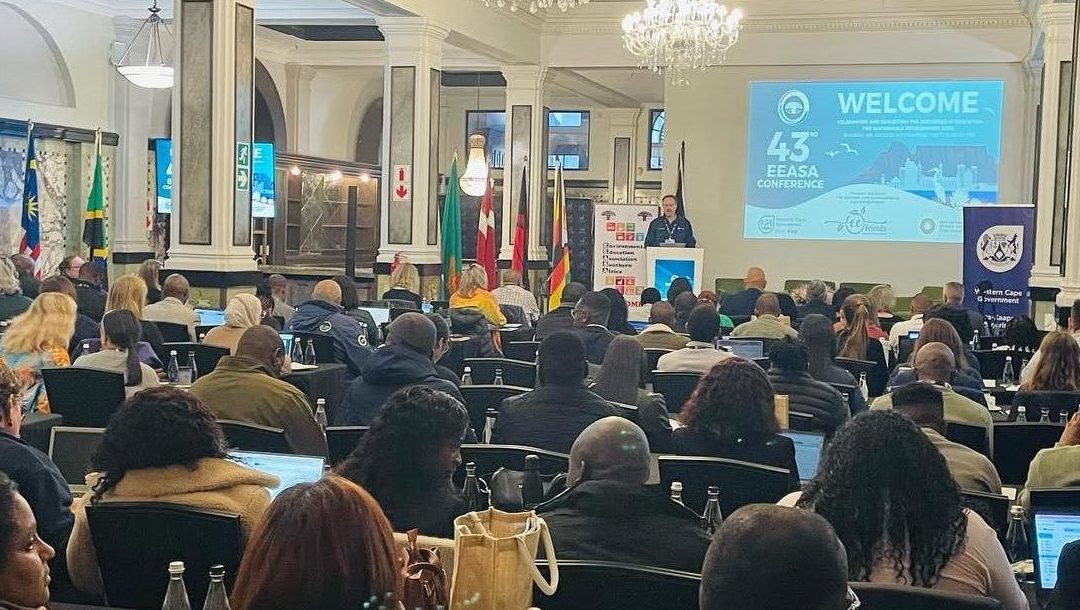The School for Climate Studies joined as a proud partner in the 43rd Annual Environmental Education Association of Southern Africa (EEASA) Conference, held at the Taj Hotel in Cape Town from 16-19 September 2025.
Founded in 1982, the Environmental Education Association of Southern Africa (EEASA) is a regional network that brings together educators, researchers, policy makers, students, NGOs, industry partners, government representatives, and practitioners that are committed to advancing environmental and sustainability education across Southern Africa.
This year’s theme, “Celebrating and Reflecting the Successes in Education for Sustainable Development (ESD): Building on Success and Shaping the Future of ESD” called for education to lead the way in building a just and sustainable energy future.
Western Cape Deputy Mayor, Alderman Andrews, opened the proceedings by welcoming 300 delegates from 14 countries. In his address, he highlighted the province’s commitment to preparing future generations for a greener, more sustainable economy.
“The real impact of the transition is felt at the local level,” he said. “Whether in schools or community centres, we need education that equips people to actively participate in the change,” Andrews said.
The welcoming address was followed by high-level panel discussion, facilitated by Gerhard Gerber, Head of the Department of Environmental Affairs and Development Planning, on “Transforming Education for the Just Energy Transition” and featured voices from provincial government, local government, academia and education management.
Among the panellists, Professor Guy Midgley — Director of Stellenbosch University’s School for Climate Studies — emphasized the urgent need to integrate climate knowledge into classrooms.
“The science is clear: the energy transition must be fast, but it must also be fair. Education ensures fairness,” Prof Midgley said.
Other panellists included Alwie Lester, Special Advisor to the Premier of the Western Cape, Ms Thandeka Tshabalala from the City of Cape Town, and Mr Bertram Loriston, DDG: Curriculum and Assessment Management, Western Cape Department of Education (WCED). Panellists agreed that energy transition can’t happen without education and that schools and universities are critical in preparing learners for this energy transition.
For the remainder of the conference, the delegates split daily into parallel sessions where they showcased research and shared approaches used by environmental education practitioners. Topics presented in these sessions centred around:
- Promoting ESD learning by shifting from rigid curricula to dynamic educational practices across all educational contexts
- Engaging youth and communities as vital voices in ESD
- Strengthening ESD through partnerships, social learning networks, and private and public sector involvement
- Balancing arts with science, technology, and mathematics to enrich environmental education
- Utilizing ICT and technological innovations to enhance ESD learning experiences
The Iimbovane education team from the SU School for Climate Studies also delivered an oral presentation during which they showcased their climate education activities with learners and educators in Western Cape schools.
The conference concluded with a Gala dinner at Kirstenbosch, where the host country for next year’s 44th EEASA Conference was announced. Congratulations to Malawi!

